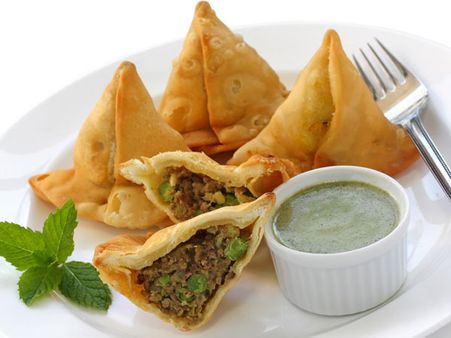Just In
- 2 hrs ago

- 3 hrs ago

- 8 hrs ago

- 12 hrs ago

Don't Miss
- Finance
 1:10 Stock Split: 1 Rs 980 Smallcap Has Split Into Ten Shares; Check Out New Price Level, Fundamentals!
1:10 Stock Split: 1 Rs 980 Smallcap Has Split Into Ten Shares; Check Out New Price Level, Fundamentals! - Sports
 Who Won Yesterday's IPL Match 33? PBKS vs MI, IPL 2024 on April 17: Mumbai Indians Escape Last-Ditched Fight by Punjab Kings To Win
Who Won Yesterday's IPL Match 33? PBKS vs MI, IPL 2024 on April 17: Mumbai Indians Escape Last-Ditched Fight by Punjab Kings To Win - Movies
 Do Aur Do Pyaar OTT Release Date & Platform: When & Where To Watch Vidya Balan’s Film After Theatrical Run?
Do Aur Do Pyaar OTT Release Date & Platform: When & Where To Watch Vidya Balan’s Film After Theatrical Run? - News
 BRS Chief K Chandrasekhar Rao Slams BJP, Says K Kavitha's Arrest Is Vendetta Politics
BRS Chief K Chandrasekhar Rao Slams BJP, Says K Kavitha's Arrest Is Vendetta Politics - Automobiles
 Aprilia RS 457 Accessories: A Detailed Look At The Prices
Aprilia RS 457 Accessories: A Detailed Look At The Prices - Education
 Karnataka SSLC Result 2024 Soon, Know How to Check Through Website, SMS and Digilocker
Karnataka SSLC Result 2024 Soon, Know How to Check Through Website, SMS and Digilocker - Technology
 Nothing Ear, Ear a With ANC, Up to 42.5 Hours of Battery Launched; Check Price and Availability
Nothing Ear, Ear a With ANC, Up to 42.5 Hours of Battery Launched; Check Price and Availability - Travel
Telangana's Waterfall: A Serene Escape Into Nature's Marvels
7 Basic Health Tips To Follow During Ramzan
Folks! It is that time of the year where the holy month of Ramzan is being celebrated across the globe.
One whole month of delicious food, even though it is limited to just two times a day, and all the fun-filled festivities, family get-togethers, prayers, shopping for new clothes, etc, can all be rather exciting.
People who celebrate Ramzan observe fasting on every day of this month. They limit themselves to just two meals a day.
Also Read: 7 Amazing Health Benefits Of Fasting During Ramzan
The first meal of the day is consumed before dawn, known as the Suhoor, and the last meal of the day is consumed after sunset, called the Iftar.
Since our body is not used to the huge gap in between the meals, fasting during Ramzan may sometimes lead to digestive issues like gastric, acidity, abdominal discomfort, constipation, etc.
So, to have a stress-free and healthy Ramzan, it is important to have a balanced diet and also take certain precautions.
Also Read: Have These Healthy Foods To Avoid Constipation During Ramzan
It is no fun falling sick during a festival and missing out on all the celebrations and spending time with your family and friends.
So, you can follow these simple health tips to keep yourself healthy and fit during Ramzan, have a look!

Tip #1
Try not to miss out on the Suhoor, as it is the first meal of the day. Skipping Suhoor can slow down your metabolic rate and may also lead to binge-eating during the Iftar, leading to weight gain.

Tip #2
After the Suhoor and Iftar, you can take a walk or indulge in some light exercise, so that your metabolic rate remains active, thereby keeping your immune system stronger.

Tip #3
Limit the fat intake during the two meals, you can always substitute deep-fried foods and sweets with lean meat, fruits and veggies. The high-calorie food can be had once in a week, but consuming them every day is definitely not healthy.

Tip #4
Baked samosas, boiled dumplings, chapatis made without oil, baked or grilled meat, milk-based sweets, etc, are some of the more healthier options that you can include for the two meals.

Tip #5
If you have the time, you can take a short afternoon nap. This will help restore your energy during the fast to keep you feeling active throughout the day.

Tip #6
Ensure that you keep yourself well hydrated to avoid dehydration and constipation. Drink enough water and also healthy fruit juices.

Tip #7
Make sure that you do not over-eat during the meals, especially during the Iftar, as it is the last meal before bed time, and your body will not be able to digest a lot of food at once during the night, which could lead to more digestive issues.
-
 healthExclusive: Expert Shares Impact of Heat Waves on Infectious Disease Transmission
healthExclusive: Expert Shares Impact of Heat Waves on Infectious Disease Transmission -
 healthExclusive: Doctor Shares Why Women Should Prioritize Health, Key Resolutions For Well-being And Vitality
healthExclusive: Doctor Shares Why Women Should Prioritize Health, Key Resolutions For Well-being And Vitality -
 healthEverything You Need To Know About Deadly H5N1 Virus That Can Be 100 Times Worse That COVID-19 Pandemic
healthEverything You Need To Know About Deadly H5N1 Virus That Can Be 100 Times Worse That COVID-19 Pandemic -
 astrologyWorld Health Day 2024: Holistic Health Tips For 12 Zodiac Signs As Per Astrology
astrologyWorld Health Day 2024: Holistic Health Tips For 12 Zodiac Signs As Per Astrology -
 healthInstagram Claims Grapes Are Contaminated With Pesticides, Methods To Clean It Properly Before Consuming Them
healthInstagram Claims Grapes Are Contaminated With Pesticides, Methods To Clean It Properly Before Consuming Them -
 healthDutch Woman Opts For Euthanasia In May Not Due To Physical Illness, Know How To Build Mental Resiliance
healthDutch Woman Opts For Euthanasia In May Not Due To Physical Illness, Know How To Build Mental Resiliance -
 health20-Year-Old Man In China Suffers From Delusional Love Disorder, Know What Is Erotomania And Its Signs
health20-Year-Old Man In China Suffers From Delusional Love Disorder, Know What Is Erotomania And Its Signs -
 healthExclusive: On World Autism Day 2024, Let Us Empower Parents With Positive Strategies For Autism Care
healthExclusive: On World Autism Day 2024, Let Us Empower Parents With Positive Strategies For Autism Care -
 health10 Year Old Girl Dies After Eating Cake, How To Identify A Bad Cake Online, What Health Risks It Can Pose
health10 Year Old Girl Dies After Eating Cake, How To Identify A Bad Cake Online, What Health Risks It Can Pose -
 healthLove To Cuddle? These Are The 10 Amazing Health Benefits Of Cuddling Which Will Make You Want It More
healthLove To Cuddle? These Are The 10 Amazing Health Benefits Of Cuddling Which Will Make You Want It More -
 astrologyApril 2024 Health Horoscope: Know How This Month Will Affect Zodiac Signs In Terms Of Wellness
astrologyApril 2024 Health Horoscope: Know How This Month Will Affect Zodiac Signs In Terms Of Wellness -
 healthWhat Is iPhone Finger? Here's Why You Need To Worry About Its Negative Effects
healthWhat Is iPhone Finger? Here's Why You Need To Worry About Its Negative Effects


 Click it and Unblock the Notifications
Click it and Unblock the Notifications



